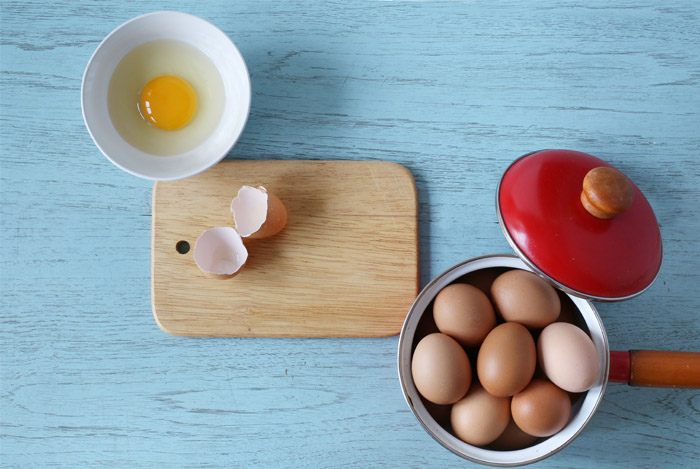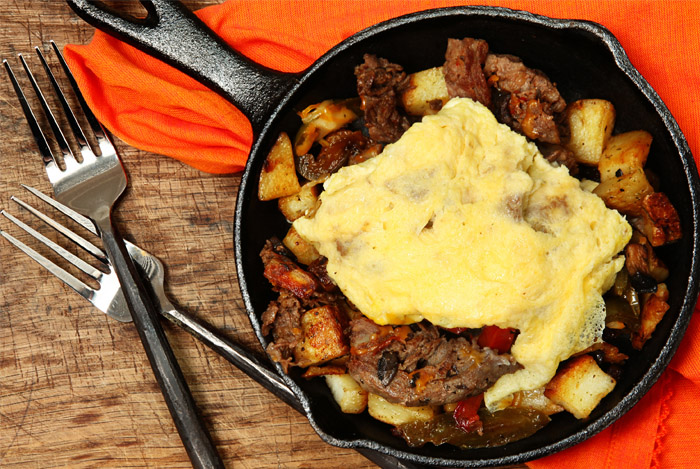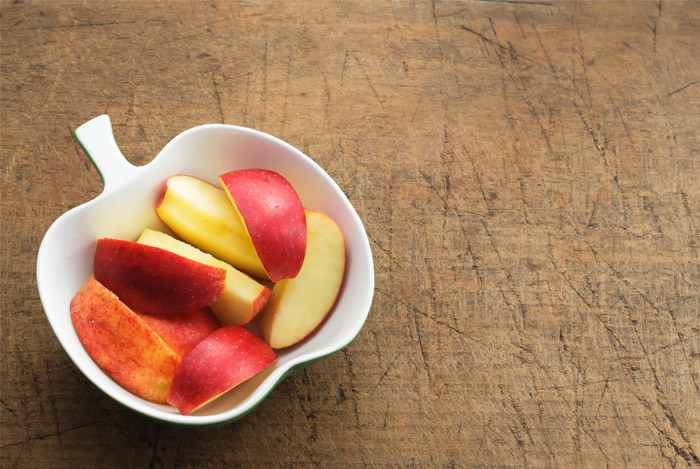If you can’t possibly imagine yourself going through a full day of work without a few cups of coffee, you’re in good company. Approximately 83% of American adults drink coffee at an average rate of three cups a day per person.
But you might not be drinking it just because you like the taste or enjoy it for its kick – you may be addicted. Coffee is the number one most consumed psychoactive drug on the planet.
If you’ve been a longtime drinker of caffeinated beverages, you’re probably more than familiar with the uncomfortable side effects of drinking too much of them: dizziness, anxiety, and acid reflux. Or, even more so, their withdrawal symptoms — headaches, fatigue, mental fogginess, and a lack of alertness. You may even take out frustrations you didn’t know you had on coworkers, or anyone else within close proximity for that matter.
It’s understandable, then, why some people opt to find a better means of providing their bodies and minds with the same alertness and energy they feel from caffeine. And yes, there are other great sources for such a morning kick.
Here are 6 caffeine alternatives that can take over the coveted position of coffee in your morning ritual.
1. Herbs
 Herbal remedies are often frowned upon by the medical establishment because their distributors tend to put all sorts of zany promises on pill bottles, promising “Lose Weight Fast!” and “Prevent Cancer!” when there’s scant evidence to back up any of the claims. But, herbs may be consistently seen as effective in another area: waking you up.
Herbal remedies are often frowned upon by the medical establishment because their distributors tend to put all sorts of zany promises on pill bottles, promising “Lose Weight Fast!” and “Prevent Cancer!” when there’s scant evidence to back up any of the claims. But, herbs may be consistently seen as effective in another area: waking you up.
Ginseng is used as an additive to beverages because of its energy promotion and stamina boosting. People often use it for reducing stress, controlling their weight, and easing menstrual cramps.
Ginkgo Biloba is an herbal extract from the nut of a tree with the same name, used for centuries in Chinese medicine. It increases blood flow to the brain and extremities, and people using it have reported better focus, overall well-being, an increased creativity. Some even use Ginkgo Biloba to treat asthma or circulatory diseases because of its effects as a vasodilator.
A 2006 article published in the Journal of the International Society of Sports Nutrition found that guarana (found in many energy drinks), purple willow bark, cayenne pepper, and ginger root could also boost mental alertness and increase metabolism, leading to potential promise of acting as replacements for caffeinated beverages.
Though, remember, it is wise to consult with your physician before you make any of these herbs a part of your everyday routine, especially if you have a weakened immune system or are taking daily prescription medication.
2. Vitamin B
 Some of the most common ingredients found in today’s energy drinks are the B complex vitamins. Vitamin B helps your body better metabolize the foods you consume, linking them inextricably to the production of energy.
Some of the most common ingredients found in today’s energy drinks are the B complex vitamins. Vitamin B helps your body better metabolize the foods you consume, linking them inextricably to the production of energy.
If you’re suffering from a deficiency of vitamin B, you may find yourself in a real rut. Because B vitamins are water soluble, our bodies aren’t capable of storing them over time. That means we need to keep replenishing them every day. Luckily, we already get most of what we need from the B vitamins if we stick closely to a well-balanced diet.
Because of the complex biochemical brain reactions and body functions they contribute to, these vitamins are particularly necessary for the basic upkeep of healthy nerve and blood cells.
According to Psychology Today, when you aren’t getting these critical vitamins your body needs, you may be suffering from fatigue and poor concentration. They went on to say that B12 and folate could possibly even ward off depression and other mental issues.
Luckily, the B vitamins can be found in lots of food choices, such as:
- Chicken
- Fish
- Oysters
- Eggs
- Breakfast cereals (supplemented)
- Cheese
- Fruit
- Brown rice
- Broccoli
- Wheat germ
- Brussels sprouts
- Collard greens
If you have a poor appetite and diet, you may be driving yourself into a vitamin B deficiency. If you don’t want to suffer the sluggishness and other negative effects of this, consider taking a multivitamin with all the important B complex vitamins, as well as a load of other essential vitamins and minerals.
3. Water
 One of the major reasons why you may feel the need to drink any beverage when you first get going in the morning is because you’re actually dehydrated. Remember how you were just asleep for around 7 or 8 hours? Yeah, your body could most likely use something to drink.
One of the major reasons why you may feel the need to drink any beverage when you first get going in the morning is because you’re actually dehydrated. Remember how you were just asleep for around 7 or 8 hours? Yeah, your body could most likely use something to drink.
While caffeine in coffee may have a mild diuretic effect, it has not been linked to increased risk of dehydration. In other words, you’re quenching your thirst with coffee when you could simply be reaching for water instead.
And, water is calorie and caffeine-free. Duh.
Not only will you be helping your body stay as hydrated as possible by drinking water when you first wake up in the morning – a glass of ice cold water can shock your system and drive your metabolism into high gear – but, drinking a large, frosty glass of water has also been shown to fire up your metabolism by 24% for 90 minutes.
Also, the brain is 75% water. If you aren’t getting the proper hydration, your brain might be straining a little more than usual. If you kick start your day with a big glass of water, you’ll be doing your brain a favor.
On top of all this, a study demonstrated that people who drank a glass of water before every meal lost 4.5 pounds over a three month period. And, their stomachs were fuller going into meals, causing them to eat less, which resulted in a negative energy balance over time.
If every time you thought of brewing a pot of joe, you poured yourself a glass of water instead, you’d be doing much better for your healthc. And remember, you can keep drinking water all day – it’s pretty tough to overdose.
4. Carbs and Protein
 When someone is cooking breakfast and you suddenly feel yourself rising out of bed and following the scent to the kitchen, that’s because the typical breakfast foods are great sources of protein and carbohydrates your body craves for energy.
When someone is cooking breakfast and you suddenly feel yourself rising out of bed and following the scent to the kitchen, that’s because the typical breakfast foods are great sources of protein and carbohydrates your body craves for energy.
People who have been placed on low carb diets like Atkins may find themselves feeling groggy, and can have trouble with wakefulness. That’s because the carbs they’ve been cutting are some of the most important sources of energy for the body – especially the rich, complex carbohydrates, which typically have four calories of energy per gram.
One study showed that people who ate high fiber cereal every morning for two weeks had more energy, less emotional distress, and enhanced mental clarity than they did on their usual breakfasts.
Not only is protein one of the more effective ways of providing you energy and helping you to eat less over the course of the day, it also comes in some truly delicious breakfast forms. Eggs, for instance, can be made in myriad ways, taste great, and pack an awesome protein punch of 6 grams per egg.
If you aren’t necessarily an egg aficionado, replacing your coffee habit with trail mix containing nuts and seeds, a low fat dairy product, or even a small portion of chicken, can provide you with a protein boost that has comparable effects to caffeine.
What I’m saying here is pretty simple, really: eat your breakfast. A healthy one.
Because of our constantly on-the-go work culture, a lot of Americans opt to skip breakfast altogether, drinking their calories in the form of caffeinated beverages they pull from drive-thru windows on their way to work. If we found the time for breakfast instead, we might just forget we ever needed caffeine.
5. Apples
 Yes, yes, an apple a day. We all know the phrase. But instead of the doctor, what if an apple a day actually kept you away from coffee?
Yes, yes, an apple a day. We all know the phrase. But instead of the doctor, what if an apple a day actually kept you away from coffee?
A single medium-sized apple contains around 25 grams of carbohydrates and 95 calories, along with 4 grams of fiber. When you chew an apple, you’re opening up neural and muscle pathways, and the fructose inside it sparks your metabolism into energy production. Fructose may actually have an energy boost equivalent to that of caffeine for some people.
Fruit, like apples, also takes less time to digest on an empty stomach than do more complex carbs and higher protein content foods. An apple can be processed by the body in around 20 to 30 minutes instead of 1 to 3 hours, meaning you’ll come across that energy boost in a much faster window of time.
Even if you don’t choose to use apples in place of your morning coffee, you should still consider eating them and other fruits on a daily basis. For more information on how much fruit you should be eating every day, check out this recent blog post.
Apples contain high levels of vitamins, phytonutrients, and antioxidants – all linked time and time again to awesome health benefits. While they may not have any caffeine, the nutritional benefits of apples will make your whole body feel more awake, without the nasty side-effects of jolts, mood swings, anxiety, jitters, and full-on energy crashes.
6. Exercise
 This one might seem like the most obvious way to get your heart beating faster and your adrenaline pumping through your system, but a whole lot of people are seriously in need of more of it.
This one might seem like the most obvious way to get your heart beating faster and your adrenaline pumping through your system, but a whole lot of people are seriously in need of more of it.
Jogging or running, even if it’s just around your house or your block, can give you a healthy morning kick. Plus, these activities are undeniably great for your health and fitness. Exercise increases circulation, which wakes up your whole body in a way that caffeine pales in comparison.
However, it should be noted that more strenuous exercise does have one drawback – you’ll probably need to take a shower afterward, for the sake of everyone in your office.
If you get yourself into the habit of stretching once you hop out of bed, you’ll be increasing oxygen metabolism in your blood, sending oxygen rich blood cells to the muscle and brain, leading to enhanced alertness and focus. And you can achieve a similar effect at any time of the day; if you’re fighting through that 2 o’clock slump, stand up from your work station and do some stretches to recharge your batteries.
Maybe you just can’t see yourself abandoning caffeine altogether. And that’s okay – even after learning all of these alternatives, I’ve still maintained a healthy liking of coffee to this day. Not to mention, there are some scientifically proven benefits to drinking coffee in moderation.
It should be noted that if you’re just now switching off of caffeine and are trying some of these alternatives, you may not see instantaneous energy benefits compared to what you’ve been getting from your morning cup of coffee. They’ll take time, as your body is still dealing with the effects of caffeine withdrawal.
Caffeine is most definitely one of the strongest energy supplies out there, but that doesn’t mean you need to be constrained to using it instead of any other method of waking your body and mind. Try some of these alternatives for a morning kick, and kick caffeine to the curb.
Would you consider ditching your coffee addiction? Have you already tried some of these alternatives? Share your stories in the comments below!
The post 6 Caffeine Alternatives to Give You the Morning Kick You Crave appeared first on Nutrition Secrets.
http://www.nutritionsecrets.com/caffeine-alternatives-to-give-you-the-morning-kick-you-crave/
No comments:
Post a Comment